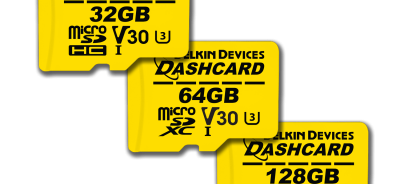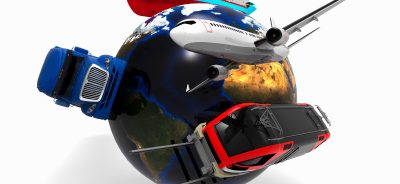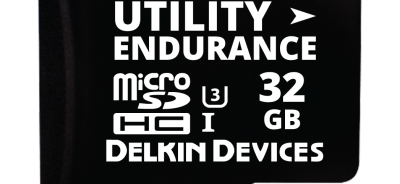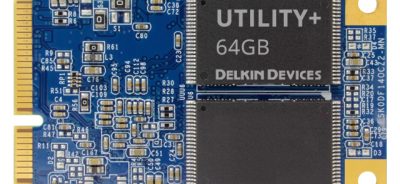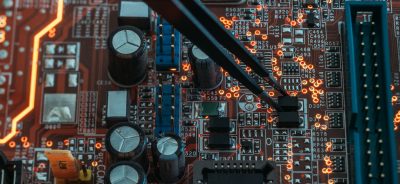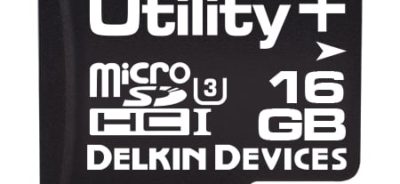Industrial CF Cards for the Communications/Networking Industry
Which kind of embedded storage is best for industrial applications? It is an understandable question, but it doesn’t have an easy answer. The question resonates especially for communication/ networking industry applications. No two industrial applications are the same, so there are no one-size-fits-all answers when it comes to selecting the best embedded memory. Every application is used in different environments by organizations with different operational needs and budgets. Additionally, every industry has its own unique needs, so finding a single type of embedded memory that works for all situations is impossible.
At Delkin, we understand that companies need customized solutions for embedded memory. We work closely with each of our customers to understand their host device design, environmental operating conditions, and testing needs. That way, we can always recommend the right storage for their application. We leverage our comprehensive understanding of our memory cards to consider all of their capabilities and how each one would work for different customer needs.
We recently had the chance to put this commitment to the test when approached by a customer in the communications/networking industry. The customer came to us after having unusually high failure rates with their CF cards. They struggled to determine why their embedded memory was failing, so they decided to contact Delkin for assistance.
Customer Story
At the beginning, this customer didn’t have any issues with their CF cards. However, they decided to turn to Delkin when they started noticing a spike in failure rates. Additionally, they were surprised at how quickly the cards were wearing out. The cost of constantly replacing the CF cards, coupled with the disruption caused by the failures, was becoming untenable for the customer.
Before coming to Delkin, the communications customer reached out to the supplier they were currently using for CF cards. That supplier couldn’t find an issue with the cards and suggested the problem may be with the host device. The customer still suspected that the cards—rather than their application—were at fault. They decided to ask Delkin for a second opinion, allowing us to see if we could determine the issue. The customer also explained that they had a tight budget for memory cards. In fact, they couldn’t carry the expense of the failures any longer. They needed a solution that would not only solve the problem of the frequent failures, but would also fit into their budget.
Delkin Discovery
One piece of information from the initial conversation with the customer immediately caught the attention of the Delkin team. The CF cards they were using were MLC, or multi-level cell, flash cards. The devices in question were being used in extreme temperatures; this can easily cause flash memory that is not designed for rugged conditions to fail. Delkin suspected that the MLC CF cards couldn’t withstand the operating conditions.
The type of card being used—CF—was quickly dismissed as an issue. CF cards have been used in an enormous list of devices over multiple decades without any large-scale pattern of issues, especially in communications. In fact, CF cards are so popular because they are so reliable. Plus, their hard disk drive-like connectors make them widely compatible. For this customer, CF cards seemed to be a good choice. They were likely simply using the wrong level of flash memory.
Delkin suspected that the customer would instead benefit from using SLC flash memory CF cards. SLC, which stands for single-level cell, offers a higher degree of data security than MLC flash. Furthermore, it can tolerate extreme operating conditions with temperatures ranging from -40 degrees C to 85 degrees C. Since the customer’s application was used in an extremely hot environment, Delkin suspected that shifting to the SLC CF card could solve the issue.
In order to verify this theory, Delkin tested the customer’s application in a variety of scenarios using the MLC flash cards. The device worked fine until standard MLC operating conditions were exceeded. Not every MLC card failed in those conditions, but enough did to confirm the issue to Delkin. After testing SLC cards in the same conditions without failures, the Delkin team believed they had found a solution.
Delkin’s Recommendation
Delkin explained their findings to the communications customer and suggested that the customer move to SLC CF cards. Initially, the customer was hesitant. After all, they had previously avoided SLC cards because they believed that they couldn’t afford them. Fortunately, Delkin was able to demonstrate how the longer lifespan of SLC cards, combined with the reliability that would reduce downtime for the devices, would actually save them money. The customer ultimately agreed that SLC CF cards were the best choice for their device in terms of operation and budget.
Lessons Learned
The best industrial embedded storage is not necessarily the one with the cheapest price tag. Sometimes, that upfront savings can lead to much greater costs in the long run because of device failures and downtime. Instead, you can find the most cost-effective solution by focusing on getting the level of performance and reliability you need for your device, based on how and where it will be used.
The Delkin customer applications team can test flash storage solutions in real-world operating conditions to help you find the best fit for your operations and your bottom line. If you need embedded, industrial memory for rugged operating conditions, reach out to us today. We’ll be happy to tell you more about our customized testing, storage customizations, and wide range of flash memory solutions for the communications/networking industry.
ORDER DELKIN INDUSTRIAL FLASH STORAGE TODAY through our distribution partner Newark.
For Europe Contact Our Partner Farnell
 Login
Login Register
Register



